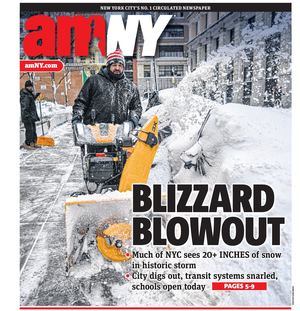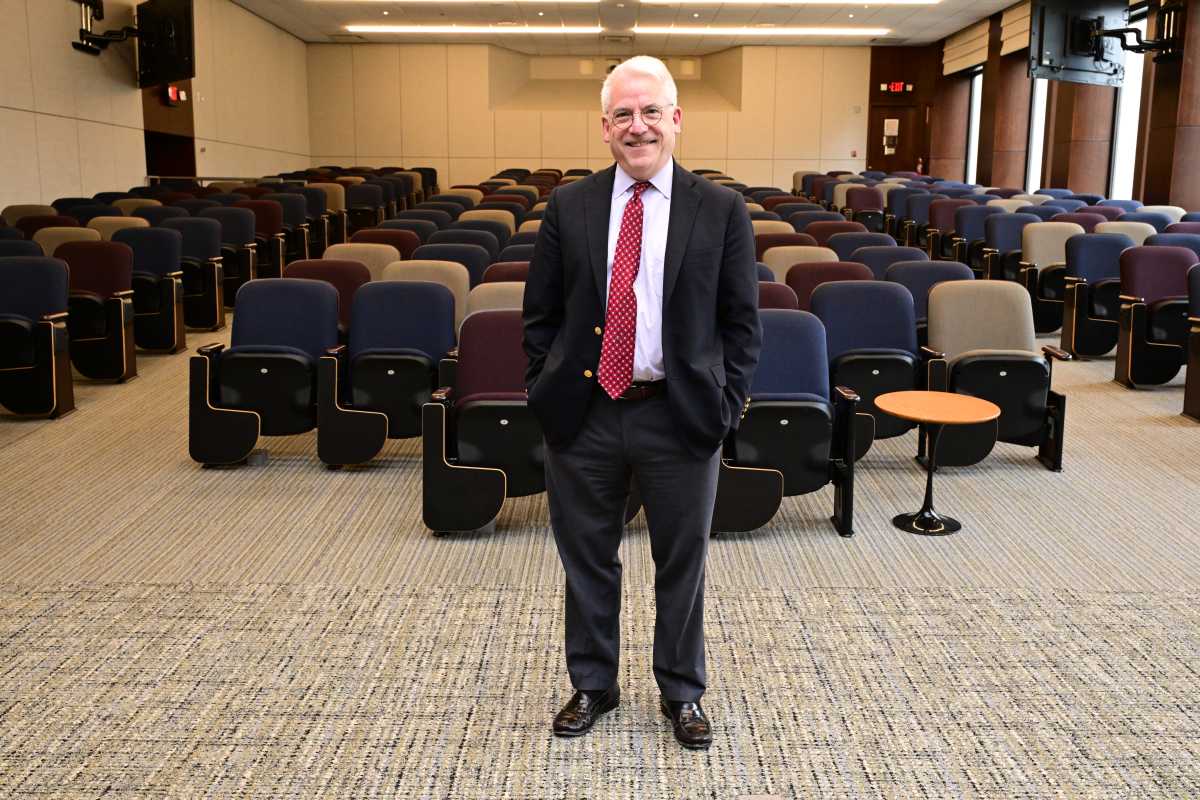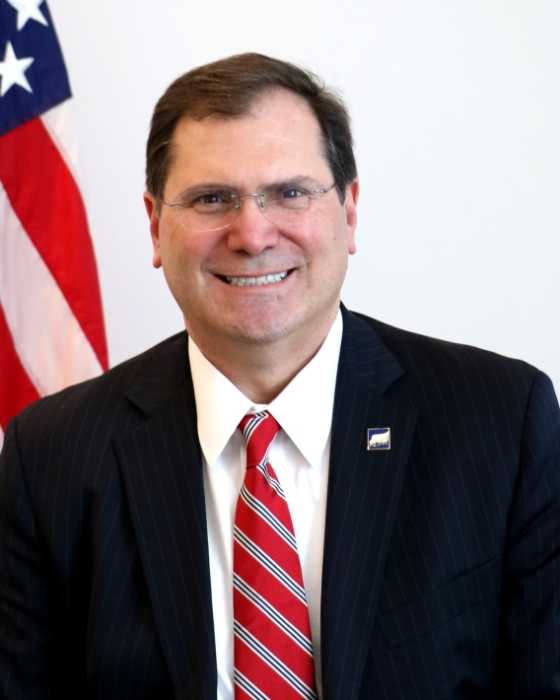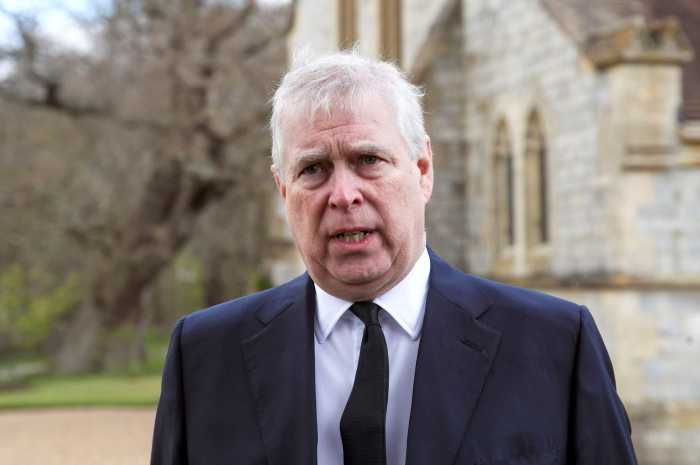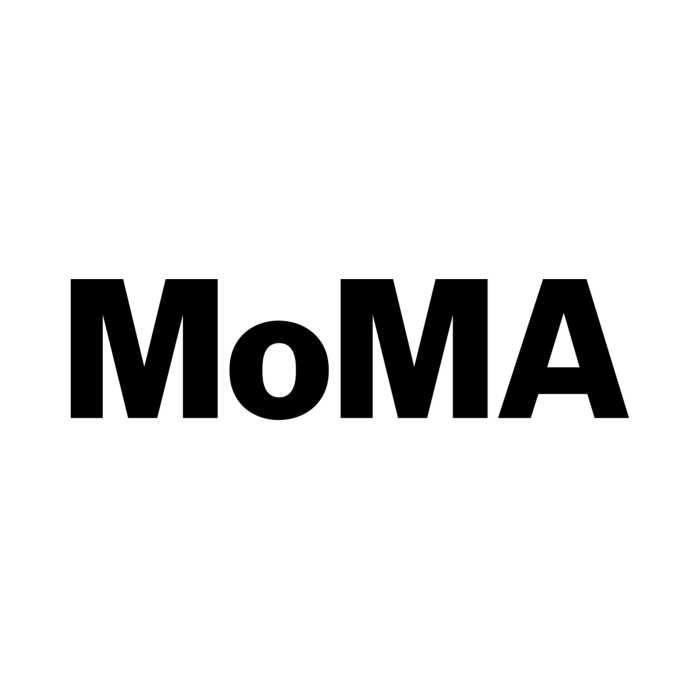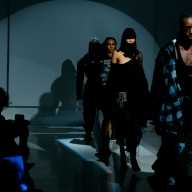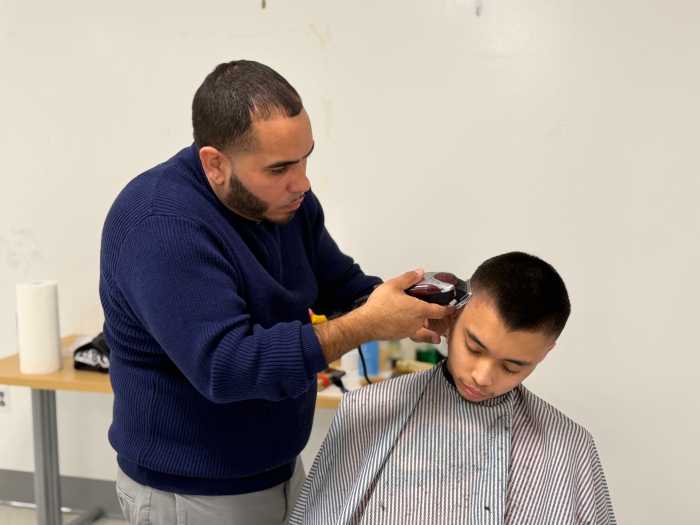Brooklyn Law School Dean David Meyer sees the practice of law as a problem solving tool.
With a staggering 21 percent increase in applicants this year following the recent presidential election, Meyer said young people are generally getting more exposure to lawyers as playing an important social role. This has driven interest toward the law “rather than using their talents to go to business school or medical school or some other area that they might choose.”
“Lawyers play a crucial role in problem solving, which is something that really defines [them], whether they’re working in business law and solving problems for businesses or in immigration law or in family law,” he said. “And when the world is facing a lot of challenges, the need for problem solvers becomes more visible.”
Historically Brooklyn Law School, a large private institution with around 1,100 students, has served as a means to bring professional access to working class immigrants and women. Almost 125 years after its founding, the school has developed into an increasingly large pipeline to New York’s “big law firms,” according to Meyer.
Though the scope of programming has evolved to encompass an increasingly large corporate, media and entertainment program as well as public interest and criminal law, Meyer made the case that Brooklyn Law’s trajectory is well suited for the current economic and political climate.
When he saw law school applications skyrocket, and surveys showing that the nation’s “charged political climate” has stirred interest in a new generation of lawyers, Meyer said he didn’t necessarily see it as a unique response to the Trump administration. Although it’s still early in the admissions cycle, he hasn’t seen student interest largely redirected toward public interest law, which has always had a strong presence at the school.
Brooklyn Law School has a distinct history within the city’s legal institutions. Founded by entrepreneur Norman P. Heffley and legal scholar William P. Richardson in 1901, the school opened its doors as an evening program for working people with the goal of serving minorities, women and immigrants.
“For the first decades of the school’s existence, a majority of the students in the class were immigrants reflecting Brooklyn,” Meyer said.
The law school was founded on the idea that anyone with the ambition and talent to step up and get an education at a time “when most law schools that existed then were kind of old school, traditional and candidly highly exclusionary places meant to sort of reinforce the status quo.”
Richardson, its founding dean, set up a system that allowed students who had difficulty paying tuition to keep taking classes on credit.
On the wall of Meyer’s office, a set of photos from the mid-1920s portray groups of women in plaid and satin flapper dresses — the law school’s sororities, which Meyer pointed out is “extraordinary” given that some Ivy League law schools didn’t accept women law students until decades later.
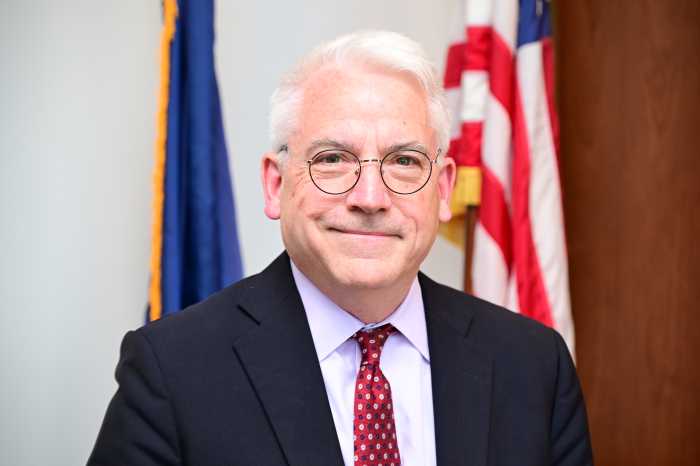
The city is still new to Meyer — even though he briefly lived in Staten Island as a young child and he and his wife spent a semester teaching at Brooklyn Law School in 2008.
For Meyer who came to his new post 2023 after serving as the dean of Tulane Law School for 13 years, the allure of Brooklyn has not worn off. He said he continues to be amazed at the types of opportunities the city affords law students.
The day of his conversation with amNY Law he had heard about 20 or 25 students who spent the day with the legal team of Paramount Global in Times Square, “[engaging] directly with lawyers who are doing fascinating and important work at the highest level.”
Though Meyer’s legal career began in federal and international government, he has spent nearly the last 25 years in law school administration roles, a career arc that he pursued because like the current influx of students, he was drawn to “the appeal of problem solving within an institution and you know, making a difference,” he said.
“One of the things I missed about law practice when I became a professor was that law practice was much more collaborative and much more practical and problem solving than being professor, because it is oftentimes kind of a solitary pursuit,” he said.
Meyer’s interest in law came from a civic perspective. He grew up in Tallahassee, Florida in the sixties at a time when the schools were finally being desegregated.
“I saw in a very visible way how law was reshaping, making these fundamental changes in society that were felt even at the level of being a kid,” he said. “I was inspired by the importance of the law and the way lawyers can make a difference.”
Meyer’s first job out of law school was as a clerk to Judge Harry T. Edwards on the U.S. Court of Appeals in the D.C. Circuit. Shortly thereafter he was poised to clerk for the prodigious civil rights judge Thurdgood Marshall, but “sadly he retired on my last day of work for the Appeals Court.” Meyer went on to clerk for U.S. Supreme Court Justice Byron R. White, before taking a role serving as a legal adviser at the Iran-United States Claims Tribunal in The Hague.
When he arrived at Brooklyn Law School Meyer said that he didn’t want to alter the formula of the school too much.
“My ambition in coming in was not to redirect Brooklyn Law School or change it in any way, because I do think truly that its identity and its strengths are very well aligned with the future and with the market,” he said. “We are who we want to be.”
But that isn’t to say that the school’s identity hasn’t changed in the school’s recent history. In an evolution from its working class origins over the past 10 years, the school has gotten more and more students into elite corporate law firms.
“We place almost exactly a quarter of our class into so-called ‘big law’ — jobs at the top law firms. That’s a figure that has gone up significantly,” Meyer said.
What has proven to be Meyer’s biggest challenges are common to what keeps most law school deans up at night: the future of financial aid, political culture on campus and economic tailwinds.
While unstable national economic and regulatory waters ahead could spell trouble ahead, Brooklyn Law School has not started to see the impact yet. The numbers aren’t in for the class that just graduated, but last year it had its highest job placement yet, potentially ever — certainly in more than a dozen years.
“Our records aren’t perfect,” he said.
Though the last class of graduates might be safe, that doesn’t mean that employment patterns have changed somewhat by the Trump administration. Jobs in the federal government have become more limited, given the recent wave of government layoffs. He also has his eye on the changes to student loans, including lower loan limits and new Pell grant restrictions that were part of the sweeping tax and budget bill that passed the House this past week.
The other big question is the role that law school deans play in addressing the Trump administration’s strain against the limits of the rule of law on a range of issues, including his public criticism of judges whose decisions he disagreed with and the failure to immediately comply with court orders.
The contention that Meyer did take action on, along with a group of other law school deans in an open letter, was the president’s ongoing campaign against elite law firms that have participated in litigation against him. Meyer saw it violating a fundamental tenet of legal independence.
“That seemed to me a very important and fundamental principle that as a law school dean you know, it was appropriate for me to speak to,” Meyer said.
The thing he said hasn’t changed under the Trump administration, however, is Brooklyn Law School’s commitment to diversity.
“[Diversity, equity and inclusion] has just become such a freighted term that people understand it in vastly different ways. And are probably talking past each other most of the time,” he said.
Though several federal court rulings have paused the Trump administration’s ability to withhold funds from schools with diversity and equity initiatives, Meyer said that the college’s own definition of diversity initiatives follows from the Supreme Court’s 2023 decision banning affirmative action in college admissions. Though that decision prohibited race-conscious admissions, the court also acknowledged that colleges can still consider how a student’s background and experiences have shaped their development and ability to contribute to the institution.
That’s the same definition the school uses, Meyer said, “the diversity that we value is expansive and inclusive of every aspect of personal experience and background that brings value to interactions with other people and educational setting.”
That type of diversity, which functioned as its founding principle, continues to serve the school.
“This was a place that welcomed everyone and gave an open path,” he said. “And it has worked over the course of our history that we have this incredibly diverse alumni who have gone on to incredible accomplishments and so that this is a place that has valued inclusion and diversity and opportunity.”
